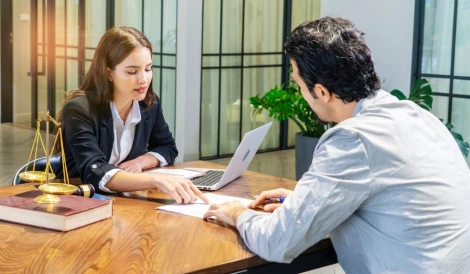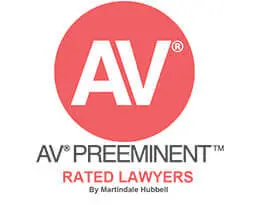
The Georgia attorney-client privilege laws are rules that ensure the confidentiality of communications between clients and their attorneys. This legal protection allows clients to discuss their cases openly, knowing that their private information will remain secure.
Whether you are dealing with a personal injury case, a criminal defense matter, or another legal issue, understanding the scope and limitations of this privilege can help you handle your case. Experienced Marietta personal injury lawyers, like Jones & Swanson, can handle the intricacies of Georgia law, providing you with trusted counsel and representation.
scope And Limitations Of Georgia’s Attorney-client Privilege Laws
Georgia’s attorney-client privilege laws are governed by O.C.G.A. § 24-5-501 and O.C.G.A. § 24-9-24. O.C.G.A. § 24-5-501 provides a general overview of privileges in legal proceedings, including the attorney-client privilege. Here, you can find information about the types of communications the law considers privileged.
O.C.G.A. § 24-9-24 details the conditions under which communications between attorneys and clients are protected. When you talk to your lawyer, anything you say is private.
This law says you don’t have to share these private conversations with anyone else. The goal is to ensure you can be honest with your lawyer without worrying that your private information will be revealed.
protected Communications
In Georgia, the attorney-client privilege covers all forms of communication between a client and their attorney. This includes:
- Talking in person or on the phone or via video call
- Sending emails or text messages
- Writing letters or other communications
- Sharing documents
Chats on electronic platforms or messaging apps are included if they are intended to be confidential and related to legal advice.
In short, if the conversation is meant to be private and concerns legal advice, attorney-client privilege laws in Georgia protect these communications.
who Is Covered Under Attorney-client Privilege?
The privilege doesn’t just apply to direct talks between the client and the attorney. It also covers conversations with the attorney’s staff, like paralegals and legal assistants. Even experts or agents that the attorney hires are protected under this law.
Anything shared with these people as part of the legal advice remains confidential.
what Are The Exceptions To The Attorney-client Privilege?
There are some important exceptions to attorney-client privilege worth knowing about. If the communication concerns planning a crime or fraud, it is not protected. Also, if the conversation is about future crimes or plans to cause serious harm, the privilege does not apply.
Lastly, if there is a dispute between the client and the attorney, like in a malpractice case, some communications may be used to resolve the issue.
duration Of The Privilege: How Long Does It Last?
The attorney–client privilege usually lasts even after the attorney–client relationship ends. It also continues after the client’s death, so protected information stays confidential indefinitely.
importance Of Confidentiality
Keeping attorney-client communications private allows clients to be open and honest with their attorneys without fear that their private information will be shared. This trust is vital for building a strong legal strategy and ensuring the best possible representation.
how To Maintain Attorney-client Privilege In Georgia
If you want to protect your legal rights, maintaining the confidentiality of communications between you and your lawyer is a must. Here are practical steps to help you maintain attorney-client privilege:
- Use private communication channels: Use secure and private methods of communication when discussing legal matters. Encrypted email services, private phone calls, and in-person meetings in secure settings are recommended. Avoid talking about sensitive information in public places or over insecure channels.
- Clearly label communications: When communicating with your lawyer, clearly mark your communications as “confidential” and “for legal advice.” This helps assert privilege if someone questions the confidentiality of these communications.
- Limit disclosure: Do not share privileged communications with third parties. Once you share this information with someone other than your attorney, you may waive the privilege.
- Seek legal advice promptly: Seek counsel promptly and provide your attorney with all relevant information. Timely and complete communication helps your lawyer build your case and ensures they can access all information protected under privilege.
- Keep legal documents secure: Store your legal documents and communications in a secure location. Whether they are physical documents or digital files, use password protection and secure storage solutions to maintain confidentiality.
- Understand the exceptions: Be aware of the exceptions to attorney-client privilege, such as the crime-fraud exception. Understanding these exceptions helps you avoid inadvertently disclosing unprotected information.
are There Consequences To Violating Georgia’s Attorney-client Privilege Laws?
Yes. Violating Georgia’s attorney-client privilege laws can have significant consequences for the attorney and their client.
When attorney-client privilege is breached for any reason, the privileged information may be used against the client in legal proceedings. Courts can exclude evidence obtained through such breaches, but the damage to the client’s legal position might already be done.
Attorneys who violate client confidentiality can face disciplinary action from the State Bar of Georgia. Depending on the severity of the breach, this can include reprimands, suspension, or even disbarment. Such professional consequences can also damage an attorney’s reputation and career.
breaking Attorney-client Privilege Laws Can Affect Parties’ Relationships
A breach of confidentiality can severely damage the trust between a client and their attorney. This loss of trust can hinder communication and collaboration, negatively affecting the quality of legal representation and the case’s outcome.
If their private information is revealed, clients may suffer personal and financial harm. This can lead to emotional distress, financial loss, and damaged relationships. Exposure to sensitive information can have far-reaching effects on a client’s personal and professional life.
call Us Today For A Free Consultation About Your Legal Matter
Jones & Swanson lawyers can explain what the Georgia attorney-client privilege laws are and how they affect the handling of your case. The state created these laws to protect your interactions and communications with your lawyer.
By consulting with us, you can determine if you really need a lawyer and ensure legal professionals handle your case with the utmost confidentiality if you decide that you do. Call our law office today to discuss your case and learn how attorney-client privilege can help you.










